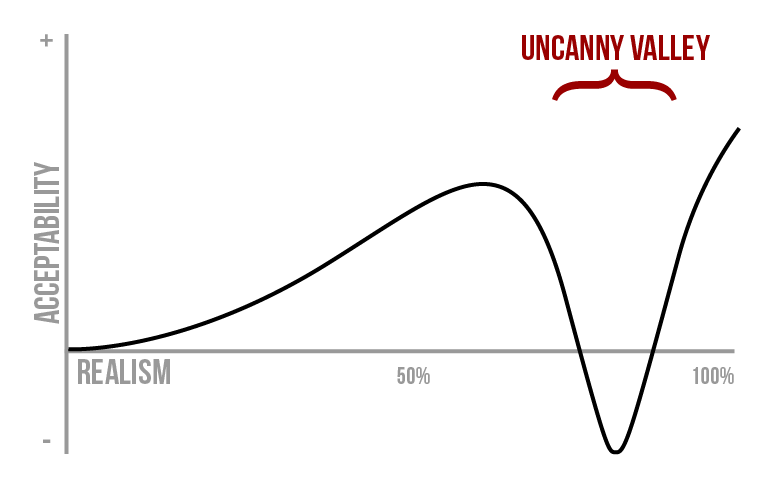Show Us Your Fingers
The worst interview advice ever is "just be yourself." But... are you?
This week I’m obsessed with the word fingerless. It pokes fun at the difficulty that the current crop of AI image generators to render a convincing facsimile of the human hand.
I feel like I’m noticing more and more AI-generated images of people in poses in which the hands are hidden or obscured by a prop.
That would show that the AI is both aware of its shortcomings and is working hard to conceal it.
Sounds like management material to me!
Anybody Home?
I complained to a client a few weeks ago that the profile introduction they’d written struck me as a bit fingerless. They immediately confessed that it was AI-generated text, and I thought “wow, nice going Matthew, you just made two people and a computer feel bad.”
My impatient and cynical mindset is of someone who has spent years and years reading resumes and profiles by the thousands. I have spent hours upon days, months upon years scouring a seemingly infinite database, searching doggedly like a loyal St. Bernard urgently searching for candidates buried but not yet lost amongst an avalanche of thousands of irrelevant applicants.
Like the highly trained but moderately compensated service animal, I grew quite adept at this simple and repetitive task. I’ll bet anybody with experience recruiting for big teams in a large company has developed a similar sense of their own capabilities.
On reflection, I’ve come to realize that what I’m looking for boils down to two important signals — like the faint fog of breath or a pocket of warmth in the snow:
Is this resume/applicant directly and closely relevant to the job I’m hiring for?
Does this person seem interesting, cogent, thoughtful, and highly engaged enough to hang with our team of extraordinarily talented and slightly maladjusted weirdos?
Two things that anybody who has been a hiring manager will tell you:
The vast majority of applicants are not in any detectable way specifically relevant to the job, nor do they meet the stated requirements, nor is no apparent explanation for why they chose to apply to it.
The vast majority of applications do not indicate authorship by someone with a active human personality, humanity, emotion, perspective, or ideas. We spent millions on software that requires applicants to re-enter all of their resume data, when in fact it might have been more productive to administer a simple Turing test.
The Opposite of Artificial
The uncanny valley describes the idea that as a simulated person becomes more realistic, they are fairly unobjectionable until just before they become nearly-perfect, when they become completely revolting.
A low-fidelity simulation is easy to tolerate — like Robby the Robot or Optimus Prime. If the simulation is any better than about 70% it provokes a feeling of discomfort or revulsion — like the cats in Cats! or Mark Zuckerberg, for example.
Is it just me? I often perceive AI-generated text as landing with a solid thud deep in the bottom of the uncanny valley. It might be hard to find anything specifically wrong with it, but there’s usually not much right about it, either.
(If this reminds you of anybody you work with, try asking them to click on the stop signs in a picture. Let me know how that goes.)
When I read a resume, an uncanny simulation of businesslike copywriting is exactly the opposite of what I am looking for. I don’t expect divine prose, light comedy, patentable ideas, or even perfect typography.
I can even tolerate a typo or two — if I can detect some real meaning in what’s being said. If it’s a composition of meaningless buzzwords, unobjectionable jargon, and boilerplate bromides, I’m just as likely to bin it.
What is the opposite of the uncanny valley? It’s anything you create using the gifts your petite but powerful human brain so generously provides.
Yours might be better than most, or it might be a bit worse. It’s hard to tell from here. You’re smart enough to use a computer, that bodes well! On the other hand, you’re reading career advice from a high school dropout, so.
Never mind that! Here’s the good news: You don’t have to be smarter than all of them — you only have to be more clever than the AI they’re using to avoid the tedious task of applying for a job.
Outsmart the legion of robotic wordsmiths using nothing more than the power of your own human mind (and one to three nonfat lattés, but never after 4 pm.) In the process, you are supplying the hiring manager with canny signals that indicate you’re well-suited to the position, and that you are a sentient human being with human fingers and toes.
Here’s how to do that:
Supply an interesting anecdote that relates your professional experience to the job you’re applying for. I often advise people to prepare STAR or PAR-format anecdotes in preparation for interviews. These anecdotes are also deployed to excellent effect in the About section of your profile, or in a cover letter when you’re looking to get the attention you deserve.
Example: “In my role at Acme Corp, I led the team’s adoption of time tracking software that drove a 25% increase in billable hours. Your job posting mentions that you’re adopting new design collaboration tools, and I believe this experience will be relevant to that challenge.”Some more than others, but some AI is weak in understanding late-breaking news, developing trends, and recent events of significance. By incorporating these ideas into your writing, you’re showing both that you’re keeping up to date on the industry and thinking about how to apply that knowledge in your next role.
Example: “The role mentions the importance of user research. I am eager to discuss with your team the very interesting discussion taking place in the Product community about the role of a dedicated product research function vis a vis continuous discovery practices popularized by Teresa Torres.”AI-generated text often seems to avoid taking an opinionated position and favors instead a dry, even-handed survey of a topic. This is exactly what I do not want from a job applicant. Instead, tell me what you believe about something that matters, tell me why it’s important to you, and why it should matter to me. Have the courage of your convictions, without being a total blowhard.
Example: “I’m a perfect fit for a role in which people management is treated as a first-rate professional discipline, rather than the second job of someone acting as both player and coach. I am a leader who can be depended on to roll up my sleeves, and there’s ample data to show that people want a manager who takes that role seriously. I’ve worked in both environments, and I’d enjoy the opportunity to learn how you perceive the role of managers in your environment.”
There’s a satisfaction to ensuring that every message you send during your job search includes an ingredient that’s essentially you.
Even when it’s repetitive, making that effort is something to be proud of.





